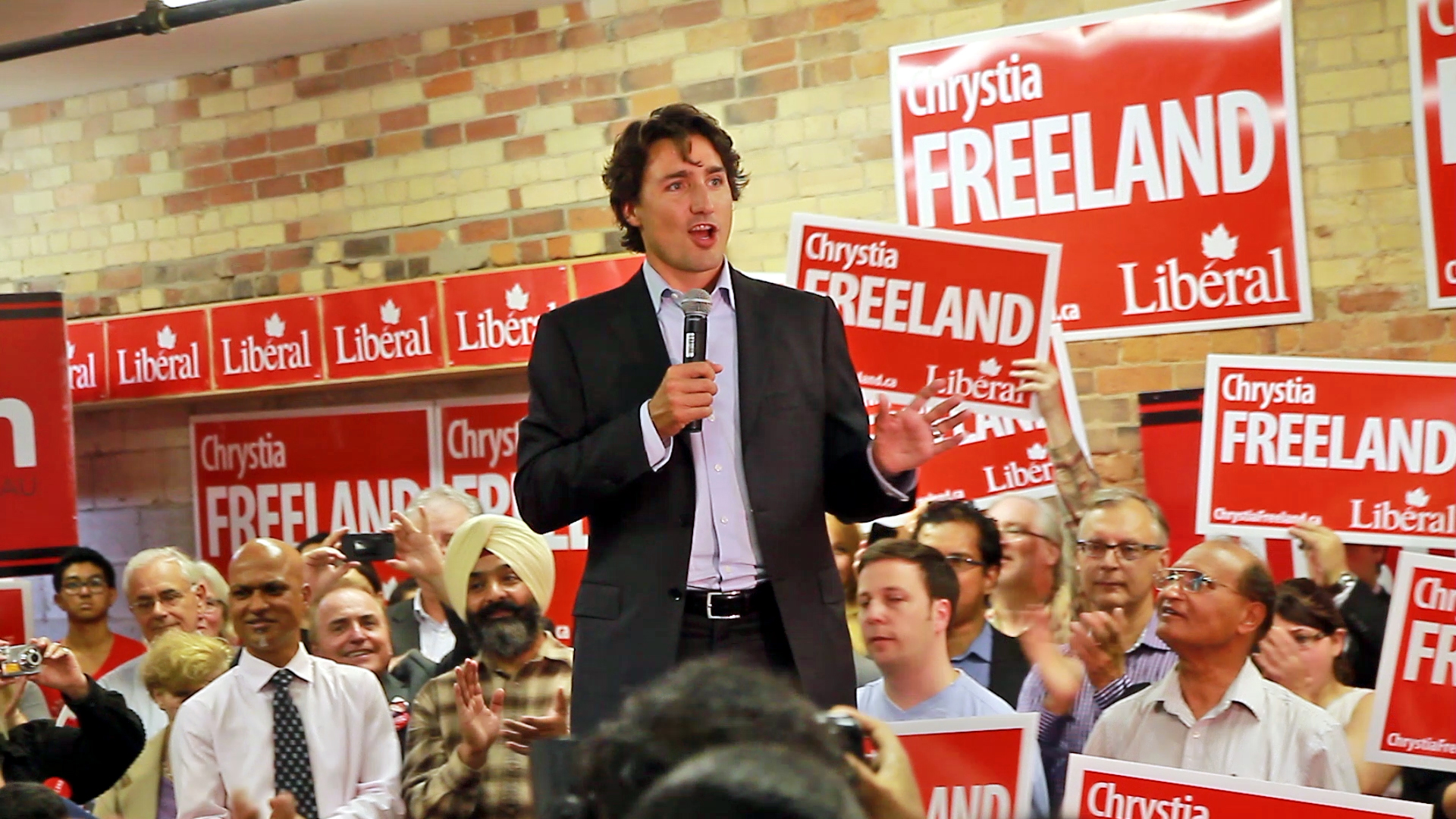Justin Trudeau appears poised to remain Prime Minister of Canada for several more years, according to a projection released this evening by the CBC, the Canadian Broadcasting Corporation. The network has assessed, based on early election results, that Trudeau will be asked by the Governor-General of Canada to form the country’s next government based on early election results.
However, Trudeau’s Liberals will not be in a position to form a government by themselves, as the network is also projecting that they will fail to win an outright majority once all the ballots have been counted.
As of 7:25 PM Pacific Time, the Liberals were leading in one hundred and forty-nine ridings (which is what Canadians call districts) and the Conservatives, Her Majesty’s Loyal Opposition, were leading in one hundred and one. The Bloc Quebecois, a regional party, led in thirty-two ridings, the NDP led in twenty, and the Green Party has picked up a riding in the maritime provinces.
Some background from The Globe and Mail:
At dissolution, the Liberals held one hundred and seventy-seven seats, the Conservatives held ninety-five seats, the NDP held thirty-nine seats, the Bloc Québécois held ten seats, the Greens had two seats, the People’s Party had one seat, the CCF had one seat, and there were eight independents. There were five more vacant seats in the 338-seat House of Commons.
A party needs at least one hundred and seventy seats to form a majority government. If no party wins more than half the seats, then by parliamentary convention the incumbent prime minister can ask the Governor-General for the first crack at governing, if they wish. A party with less than half of the seats in the House would require co-operation from other parties in order to pass legislation.
The Conservatives are Canada’s main right wing party, while the NDP is Canada’s biggest true left wing party. The Liberals are a center (or centre) left party, occupying an ideological space in between the Conservatives and the NDP.
The environmentally-focused Greens are the most left wing party that currently has representation in the House of Commons in Ottawa. The People’s Party is a small right wing party formed by an MP who broke away from the Conservatives.
If the CBC’s projections hold, Trudeau will not be able to form a government without the assistance of another political party. He could either go the coalition route, in which his Liberals would share power, or he could form a minority government supported by a confidence and supply agreement.
In either scenario, the NDP (the New Democratic Party) would seem to be Trudeau’s best potential partner and his first port of call.
Currently led by Jagmeet Singh, the NDP is the party that is arguably the most compatible with the Liberals in an ideological sense. The Bloc is a Quebec-only party, the Greens will not end up with enough seats to play kingmaker, and the Liberals and the Conservatives do not like each other.
It looks like the story of the night is that both major political parties are underperforming relative to other recent elections. The Liberals appear to have lost the majority they won four years ago, while the Conservatives have lost their opportunity to form a government. With Justin Trudeau in a weakened position, the Conservatives, under Andrew Scheer, hoped to return to power. Instead, they will likely remain Her Majesty’s Loyal Opposition for the next four years.
“Never before have both major parties taken such a small share of the vote,” noted The Vancouver Sun’s Andrew Coyne. “Never before, in my memory, have both declined steadily and together throughout a campaign. Their platforms landed with the same dull thuds, their leaders failed to impress in roughly equal measure.”
The NDP’s situation is more complicated.
While they may end up with fewer seats than they previously had (with the Bloc picking up a number of seats in Quebec at their expense), the Liberals will probably be turning to them for support, which will make the NDP’s federal delegation potentially more relevant and influential than it previously was.

